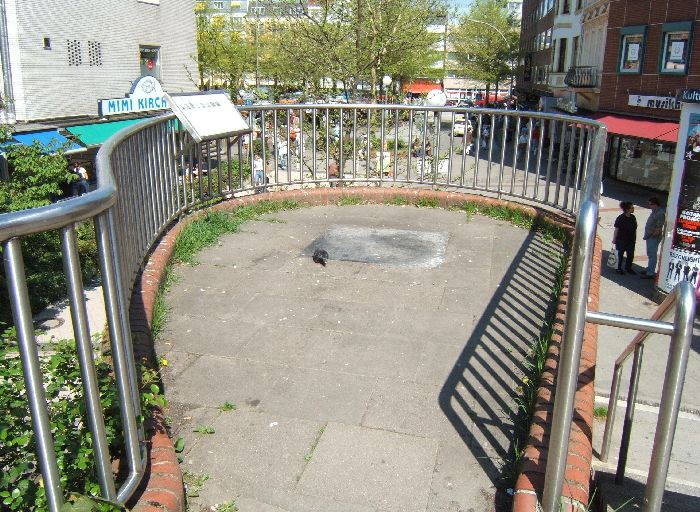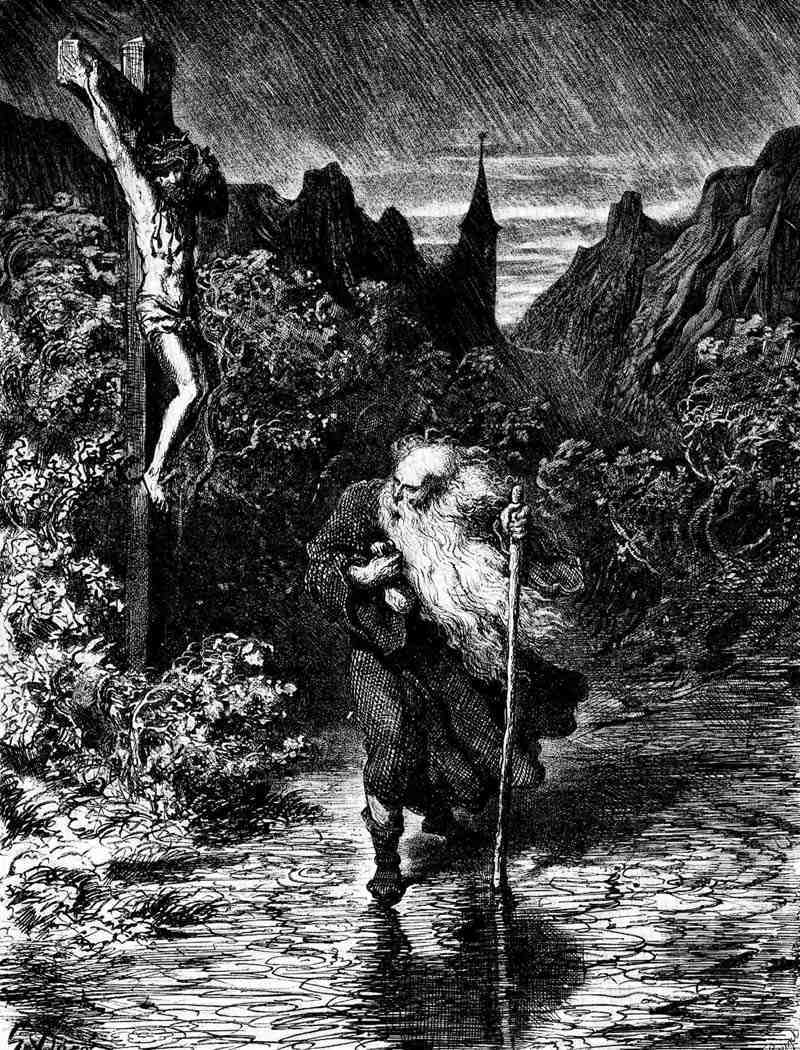Another dog chases its tail. It grows tired. It stops and rests. While resting, it realizes that it will never catch its tail, that the exercise is completely futile. It does not return to chasing its tail, rather it sits and thinks about how stupid it is to chase one's tail, and how, really, there is no point to anything. Occasionally bursting into tears, the dog thinks about these things until, eventually, it dies.
In 1986, the city of Harburg unveiled the Harburg Monument against Fascism, War and Violence-- and for Peace and Human Rights, a large metal column that sunk slowly into the ground. It was a counter-monument encouraging the personal responsibility of memory work.
In 2007, Mark Hatlie, of sites-of-memory.de, visited Harburg. After struggling to find anyone who knew where it was, he found the monument. His photograph and caption sum it up better than I can:

"The pigeon is still remembering fascism."
I look up the word "revolution" on the Oxford English Dictionary website:
A dog chases its tail. It grows tired. It stops and rests. Then it gets back to chasing its tail. This goes on and on until, eventually, the dog dies.revolution
• noun 1 a forcible overthrow of a government or social order, in favour of a new system. 2 a dramatic and far-reaching change. 3 motion in orbit or in a circular course or round an axis or centre. 4 the single completion of an orbit or rotation.
— DERIVATIVES revolutionist noun.
— ORIGIN Latin, from revolvere ‘roll back’.






